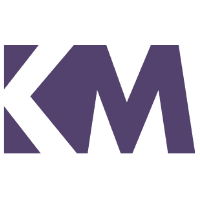Introduction
The digital marketing landscape is undergoing a significant transformation with the rise of artificial intelligence (AI), particularly in the realms of content creation and search engine optimization (SEO). AI tools, such as OpenAI’s GPT-4, are redefining how businesses produce and optimize content, offering unprecedented opportunities for efficiency and effectiveness. For SEO experts and digital marketers, understanding and leveraging AI-generated content has become a crucial aspect of staying competitive in today’s online environment.
This guide aims to provide an in-depth exploration of AI-generated content, its benefits, and its challenges. We will examine how AI can be utilized to enhance SEO strategies, the implications of Google’s guidelines on AI content, and practical tips for integrating AI into your digital marketing efforts. By embracing AI technology, businesses can improve their SEO performance, attract more organic traffic, and achieve sustainable growth.
Does your business or brand require Search Engine Optimization services? check out our affordable and effective one-off and long-term SEO packages. SEO is a long-term strategy that typically takes 3-6 months to show significant results.
Understanding AI Content
Definition of AI-Generated Content
AI-generated content refers to text, images, videos, or other media produced by artificial intelligence algorithms. These algorithms analyze vast amounts of data to create content that mimics human writing and creativity. AI tools like GPT-4, developed by OpenAI, can generate coherent and contextually relevant text, making them valuable for content creation in various industries.
Industry Stats
1. Increased Adoption: According to a 2023 survey, 61% of marketers have implemented AI tools in their content strategies, reflecting a significant increase from previous years.
2. Efficiency Gains: AI content generation can reduce content creation time by up to 50%, allowing businesses to produce more content at a faster pace.
3. Cost Savings: Companies using AI for content creation report an average cost reduction of 30% compared to traditional content production methods.
4. Quality Improvement: 45% of marketers believe AI-generated content has improved the overall quality and consistency of their digital content.
5. SEO Impact: Websites utilizing AI content optimization techniques have seen a 25% increase in organic search traffic on average.
How Can I Use AI for Content?
AI can be leveraged for content creation in numerous ways:
• Content Generation: Create blog posts, articles, social media updates, and product descriptions efficiently.
• SEO Optimization: Use AI tools to identify and integrate relevant keywords, optimize meta descriptions, and improve on-page SEO.
• Content Personalization: Generate personalized content for different audience segments based on user data and behavior.
• Data Analysis: Analyze large datasets to identify trends, customer preferences, and content performance metrics.
• Multilingual Content: Produce content in multiple languages to reach a global audience without the need for extensive translation services.
Google’s Perspective on AI Content
Google’s algorithms aim to deliver the most relevant and high-quality content to users. Therefore, understanding Google’s perspective on AI-generated content is essential for SEO success.
Will Google Penalize AI Content?
Google does not inherently penalize AI-generated content as long as it adheres to their quality guidelines.
The key considerations include:
• Quality and Relevance: AI-generated content should be informative, relevant, and provide value to the user. Low-quality or spammy AI content can lead to penalties.
• Originality: Content must be original and not plagiarized. Google values unique content that offers fresh insights.
• Transparency: Disclosing the use of AI in content creation can build trust with the audience. Transparency about AI’s role in content generation is increasingly important.
• Avoiding Manipulation: Using AI to manipulate search rankings through keyword stuffing or other unethical practices can result in penalties.
Impact of AI Content on SEO
AI-generated content has significant implications for SEO, both positive and negative.
Keywords and AI Content Optimization
Optimizing AI-generated content for SEO involves several steps:
- Keyword Research: Use AI tools to identify high-performing keywords relevant to your content. Tools like Ahrefs, SEMrush, and Google’s Keyword Planner can provide insights into keyword volume and competition.
- Content Structuring: Ensure your content is well-structured, with clear headings, subheadings, and bullet points. AI tools can assist in organizing content logically.
- Natural Language Processing (NLP): Leverage AI’s NLP capabilities to create content that aligns with how users search and read online. This includes using conversational language and answering common questions.
- Meta Tags and Descriptions: Optimize meta tags and descriptions with relevant keywords. AI tools can generate compelling meta descriptions that improve click-through rates.
- Continuous Improvement: Regularly update and refine your content based on performance metrics and user feedback. AI can help analyze data and suggest improvements.
Key Takeaways
- AI as a Tool, Not a Replacement: While AI can significantly enhance content creation and optimization, human oversight is essential to ensure quality and relevance.
- Adherence to Guidelines: Align AI-generated content with Google’s quality guidelines to avoid penalties and improve SEO performance.
- Continuous Learning: Stay updated with the latest developments in AI and SEO to leverage new opportunities and tools effectively.
- Transparency and Trust: Maintain transparency about the use of AI in content creation to build trust with your audience.
- Holistic Approach: Integrate AI with other digital marketing strategies for a comprehensive approach to SEO and content marketing.
Conclusion
The integration of AI-generated content in SEO strategies offers immense potential for efficiency, scalability, and performance improvement. By understanding the nuances of AI content creation, adhering to Google’s guidelines, and continuously optimizing your strategies, you can harness the power of AI to enhance your digital marketing efforts. As an SEO expert, leveraging AI effectively will position your brand for success in the ever-evolving digital landscape.
For more detailed insights and professional assistance in implementing AI-driven SEO strategies, visit our website KWETU Marketing Agency. Our team of experts is ready to help you navigate the complexities of AI and SEO to achieve optimal results.







 Stay ahead in the digital world! Don’t just read—put the insights from The KWETU Blog into action today and watch your brand grow.
Stay ahead in the digital world! Don’t just read—put the insights from The KWETU Blog into action today and watch your brand grow. 
